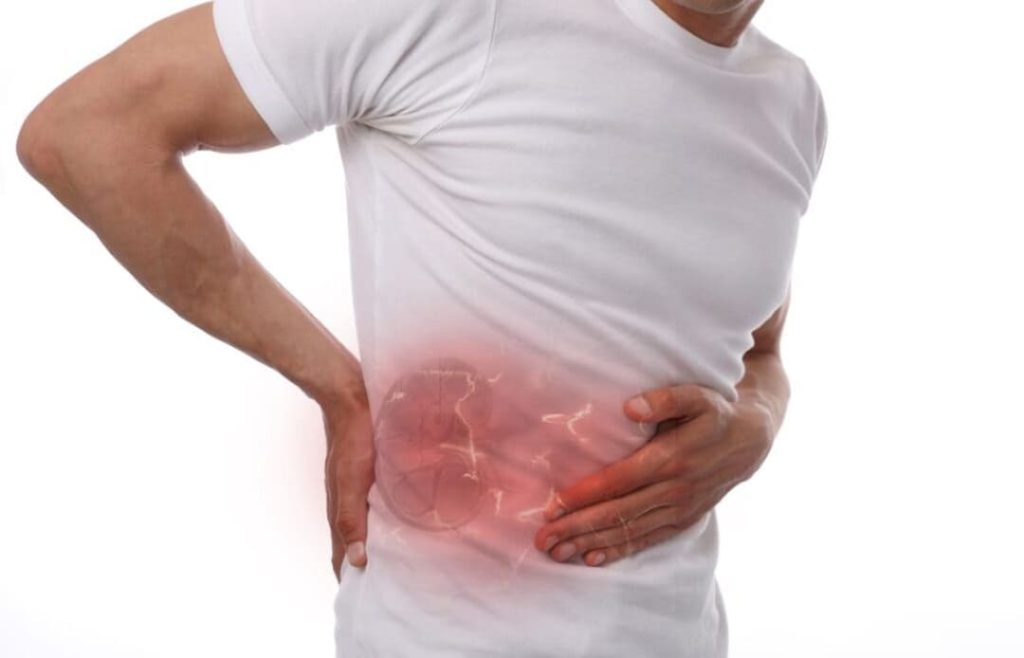Looking for Expert-Level VA Claim Answers?📱Call Us Now! 737-295-2226
If you’re a veteran with kidney stones, you may qualify for a kidney stones VA rating. Unfortunately, many veterans don’t know they may be eligible for these VA benefits and compensation.
This guide will explain how to qualify for VA disability for kidney stones. We’ll also break down how the VA rates kidney stones, how to prove military service connection, and more.
Let’s take a look.
Table of Contents
Summary of Key Points
- Eligibility and Diagnosis: Veterans may qualify for VA disability for kidney stones, but they must provide a medical diagnosis and evidence linking their kidney stones to military service.
- VA Rating Criteria: VA ratings for kidney stones can be 10%, 20%, or 30%, depending on the severity and frequency of attacks, with specific criteria for each rating level based on symptoms and treatment requirements.
- Proving Service Connection: To establish a service connection, veterans need medical evidence or a nexus linking their kidney stones to military service.

Veterans and Kidney Stones
Kidney stones, also known as nephrolithiasis, can be a debilitating condition for veterans. Kidney stones are a frequent illness that can cause discomfort and other symptoms.
Veterans are at increased risk for kidney stones generally due to assignments in hot climates and lack of water intake. Other conditions can also increase the risk of having kidney stones.
Veterans with kidney stones are more likely to also have hypertension, diabetes, and obesity. Kidney stones have also been linked to an increased risk of heart disease and stroke. While this connection’s exact cause is unknown, the stress of combat and other traumatic experiences may play a role.
For example, post-traumatic stress disorder has been linked to an increased risk of hypertension, which could, in turn, lead to the development of kidney stones.
Kidney stones can be painful and disrupt your daily activities.
VA Disability for Kidney Stones
Veterans diagnosed with kidney stones may be eligible for a VA disability rating.
To receive VA disability benefits for kidney stones, veterans must file a claim to the VA. They need to have a medical diagnosis and provide evidence that their condition is related to their service or other service-connected disabilities.
Kidney Stones VA Ratings
A VA rating for kidney stones can be 10%, 20%, or 30%, depending on the severity of your condition and the frequency of attacks.
Veterans with recurring kidney stones that need invasive or non-invasive treatments more than twice a year are given a rating of 30%.
VA also rates kidney stones as equal to hydronephrosis, the swelling of one or both kidneys. The criteria for qualifying for a kidney stones VA rating under this diagnostic code are:
- 30% (Frequent attacks of colic with infection, kidney function impaired.)
- 20% (Frequent attacks of colic, requiring catheter drainage.)
- 10% (Only occasional attack of colic, not infected and not requiring catheter drainage.)
If you are a veteran suffering from kidney stones, be sure to consult with a VA medical professional to determine the extent of your condition and explore all treatment options.
How are Kidney Stones Service-Connected?
To get service-connected VA rating for kidney stones, you must show that your kidney stones are related to your military service (or another service-connected condition). The best way to do this is with medical evidence or a nexus that will link the condition to your service or service-connected condition.
For direct service connection, if you don’t have any medical records before joining the military, don’t worry—the VA can still grant you service connection as long as there is evidence that your kidney stones began during your service or got worse because of your service.
You will also need to show that your kidney stones are causing problems in your daily life. The best way to do this is with a doctor’s opinion, but you can also use things like school or work records or statements from friends and family members.
Need for Nexus Letter?
Trying to get a Nexus Letter to help you prove service connection?
WE CAN HELP!
Veterans who become members of the VA Claims Insider Elite program get access to a network of independent medical providers who can write Nexus Letters at reduced rates.
Why pay $1,500 to $2,000 for a Nexus Letter when you can get one for $595?
Click HERE to speak with an expert now (no risk, no obligation, no high pressure sales tactics).
Link Between Kidney Stones and Kidney Disease
Kidney stones are a common cause of kidney disease. In fact, kidney stones increase the risk of developing chronic kidney disease by 50%.
If you have had one kidney stone, your chance of developing another one is higher. Those with one kidney stone have a 50% chance of having another within 5 to 7 years.
If you have kidney stones, it is important to get treatment right away. The sooner you get treatment, the less likely you are to develop kidney disease. Kidney disease VA ratings range from 0% to 100%. Veterans diagnosed with kidney disease may be eligible for a VA disability for kidney disease.
See our guide on VA disability for kidney disease HERE.
Getting Help with Your Kidney Stones VA Disability Claim
We’re Insiders here to walk you through everything you need to know, including how to file your VA claims. We hope this guide has been helpful. Remember, if you have any questions, we encourage you to contact us for support.
NEED MORE ASSISTANCE?
Most veterans are underrated for their disabilities and therefore not getting the compensation they’re due. At VA Claims Insider, we help you understand and take control of the claims process, so you can get the rating and compensation you’re owed by law. Our process takes the guesswork out of filing a VA disability claim and supports you every step of the way in building a fully-developed claim (FDC)—so you can increase your rating FAST!
If you’ve filed your VA disability claim and have been denied or have received a low rating—or you’re unsure how to get started—reach out to us! Take advantage of a VA Claim Discovery Call. Learn what you’ve been missing—so you can FINALLY get the disability rating and compensation YOU DESERVE!



